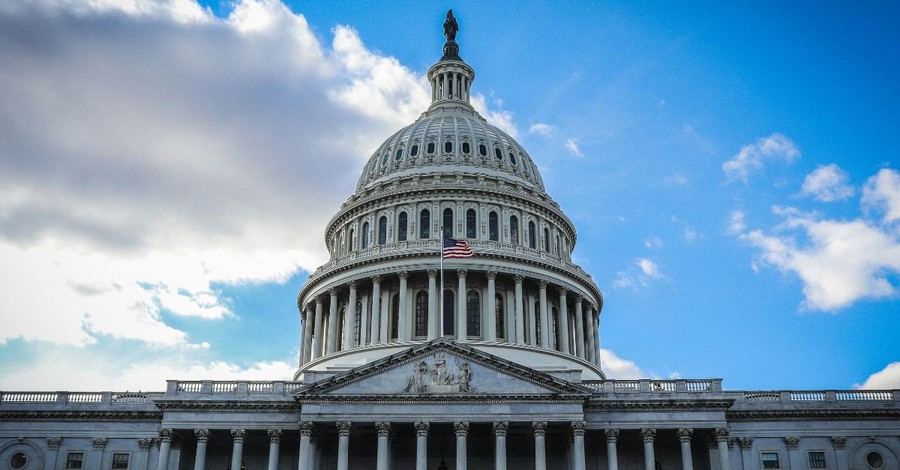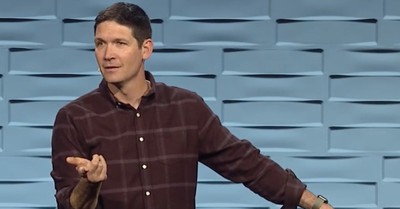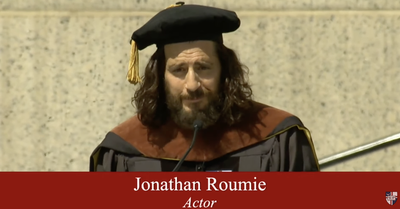
There is to be one defining mark of a political Christian.
In John's biography of Jesus, we have the poignant final words and prayers of Jesus to and for His disciples before His death on the cross. Many consider this section to be among the most moving of the New Testament.
So what occupied Jesus during the moments before His death?
Not surprisingly, He wanted the world to know that His death was a sacrificial one—that He was laying down His life for theirs, paying the price for their sins, offering that death as a gift so that they could receive forgiveness and then enter into a full, intimate relationship with God the Father.
But how would that happen?
How would people know, beyond a doubt, that what Jesus was offering really was from God? That Jesus Himself was God the Son in human form, came to planet Earth to show the way? How would it be authenticated in a way that would be unmistakable and would force people to reckon with it? What would be the unanswerable argument in His favor?
He told them: “This is my commandment: Love each other in the same way I have loved you” (John 15:12, NLT). And then He followed that with a prayer:
“I’m praying not only for them
But also for those who will believe in me
Because of them and their witness about me.
The goal is for all of them to become one heart and mind —
Just as you, Father, are in me and I in you,
So they might be one heart and mind with us.
Then the world might believe that you, in fact, sent me.”
- John 17:20-21 MSG
The observable love between those who called themselves His followers was everything.
Why?
Jesus said it would be this unity, and this unity alone, that would arrest the world’s attention and confirm that He was from the Father.
There has been so much written about the growth of the early church—sociologists have studied it extensively. The explosion of faith in Christ in such numbers and speed that in only a blink of history, the Roman Empire had officially turned from paganism to Christianity. We look for formulas programs, services, and processes. The simple truth is that they fleshed out the challenge and prayer of Jesus.
As the second-century writer Tertullian observed, the awed pagan reaction to the Christian communal life was, “See how they love one another.”
So, what is the mark of a political Christian? It’s the mark of the Christian, which is love.
Loving unity in the Bible doesn’t mean uniformity, where everyone looks and thinks alike. The biblical idea is certainly not to be confused with unanimity, which is complete agreement about every petty issue. Christians can have robust political disagreements.
By unity, the Bible means first and foremost a oneness of heart—a relational unity.
In other words, being kind to one another, gracious to one another, and forgiving of one another instead of assuming the worst or being quick to be suspicious. Biblical unity is about working through conflicts, avoiding slander and gossip, and being generous in spirit.
Love embodied by unity is the mark of the Christian. It is not just a feeling or acknowledgment of love but rather a demonstration of love.
You want to know what should happen?
I should be able to get a few Christians together—one Republican, one Democrat, and one Independent—to go to a brewery and put a flight of good craft beers in front of them. Then, they should be turned loose to talk politics.
You know what else should happen? A group of people near them who are not Christians should be able to overhear that discussion and, in the end, walk over and want to say, “We were listening to you, and we’d really like to hear more about this Jesus because we’ve never heard anything like the love you have for each other in the midst of disagreement.”
That’s the hope of a political Christian marked by love: that the world overhears us and wants to be like us.
And, more importantly, wants to be like Jesus.
Sources: The Apology of Tertullian.
Photo Courtesy: ©Unsplash/PartTimePortraits
Originally published by James Emery White. Used with permission.
James Emery White is the founding and senior pastor of Mecklenburg Community Church in Charlotte, NC, and a former professor of theology and culture at Gordon-Conwell Theological Seminary, where he also served as their fourth president. His latest book, Hybrid Church: Rethinking the Church for a Post-Christian Digital Age, is now available on Amazon or from your favorite bookseller. To enjoy a free subscription to the Church & Culture blog, visit churchandculture.org where you can view past blogs in our archive, read the latest church and culture news from around the world, and listen to the Church & Culture Podcast. Follow Dr. White on X, Facebook, and Instagram at @JamesEmeryWhite.










